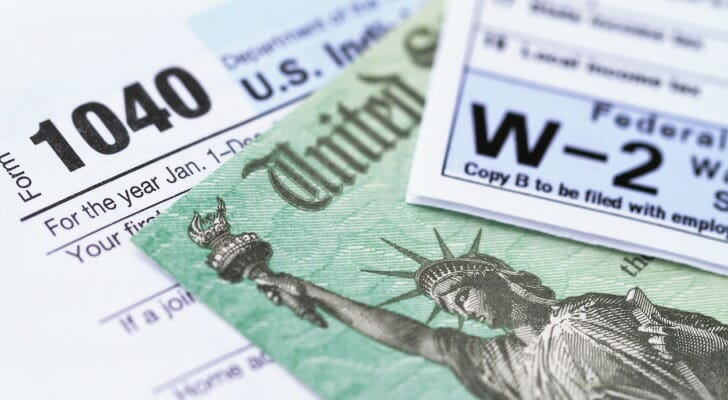A CPA, or certified public accountant, is someone who specializes in taxes and can manage the math involved with them. A tax attorney is a lawyer who knows how to review your tax decisions to see what the IRS allows. Each plays a distinct role, and there’s a good rule of thumb for choosing one: a CPA will tell you the numbers, a tax attorney will tell you the rules. What you need depends on what you’re asking.
A financial advisor specializes in investment portfolios and can help you develop long-term goals and strategies.
What Is a Certified Public Accountant (CPA)?
A CPA is a licensed financial professional. This certification requires significantly more training and continued education than a standard accountant or other tax professional. To receive your CPA license, you must meet requirements that include:
- A college degree in a financial or related field
- A total of 150 hours’ of related university-level coursework (equivalent to roughly five years of standard education), meaning that a CPA will often have a master’s degree
- A national exam issued by the AICPA (American Institute for Certified Public Accountants) administration board
- State-level requirements as issued by the state boards of accountancy
- In most states, at least two years’ professional experience in a financial field
For a complete listing of requirements, see the AICPA’s website.
Certified public accountants specialize in the numbers end of financial planning. They can review the state of your finances, find how your money is moving and make recommendations for how to manage it according to different goals. For example, if you have a business and would like to know how to manage your cash flow, you would seek out a CPA. Similarly, if you would like someone to help do your taxes and figure out what you owe come April, an accountant would handle this job.
A CPA is also trained to apply the law when it comes to finance and investments. This means that they can help you plan your taxes, investment portfolio, and finances to make sure your plans meet with clearly established rules and laws. They can help you use established legal procedures to set up a financial plan and can tell you if any aspect of your planning violates established legal boundaries.
What Is a Tax Attorney?
A tax attorney is a licensed attorney who specializes in tax law. While many law schools offer specialized certifications in this field, or even a specialized master’s degree called an “LLM” in the subject, this credential is not required. Any barred attorney can practice tax law legally. To be a tax lawyer, you must meet the following requirements:
- You must hold a bachelor’s degree or equivalent
- You must hold a law degree from a qualified law school
- If you received your law degree outside of the U.S., many states require you to get an LLM from a U.S. law school
- You must have passed the ethics exam known as the MPRE
- You must receive a license from the bar association for the state in which you intend to practice
Unlike a CPA, a tax attorney does not do the numbers. Few lawyers would know how to do your taxes to determine what you owe, at least no more so than a layperson. Nor would your lawyer be good at reviewing potential investments and advising you about them.
Instead, a tax attorney reviews your tax or financial plans to determine what is or is not legal. They can see if your plans violate any areas of the law, or can review the law to help you reach your goals. They can tell you what the IRS has said on various questions, can find areas where your financial planning overlaps with other areas of the law and can identify ambiguous or unresolved legal issues in your financial planning.
A tax attorney can also handle any challenges or complications which arise from financial matters. In extreme cases, this can include defending you or your finances in court. However, much more often this means that the attorney will work with the IRS, state treasury or other government agencies and negotiate on your behalf. In either case, your lawyer will defend their interpretation of the law if the tax agency disagrees with this outcome.
When to Use a Tax Attorney vs. a CPA

If you accidentally made a mistake on your taxes, such that you paid less than you owed, a CPA can help you work with the IRS to resolve the situation. The IRS does sometimes mistakenly issue underpayment letters, so don’t always take their word for it. In most cases using an accountant establishes good faith on the taxpayer’s part, so a tax agency will count underpayment as a simple miscalculation and apply minimal penalties and fees.
If you interpreted the tax code incorrectly, a tax attorney can defend your interpretation and help resolve the issue. Using a tax attorney also demonstrates that you made a good faith effort to comply with the law. Similar to a CPA, you will still owe any underpayment, but acting on the advice of council is often a good way to avoid most fines and penalties.
As a rule of thumb, you should use a CPA when your question is “what do the numbers look like” and you should use a tax attorney when your question is “how can I do this.”
There is some overlap between a CPA and a tax attorney. In many cases, both can advise you on what financial or tax laws allow you to do. This overlap occurs in areas where the law is well established. When the law is clearly established, or when your financial issues clearly fall within defined areas of the law, a CPA can calculate your financial outcomes. When the law is unclear, or when it is unclear how to apply the law to your financial situation, a tax attorney can help you determine what to do.
For example, the IRS allows you to deduct qualified business expenses from your professional and even, sometimes, personal taxes. It’s your CPA’s job to know about this deduction if you come to them with a list of receipts and to tell you how those expenses change your final tax bill. It’s your tax attorney’s job to tell you if something ambiguous can count as a qualified business expense, or whether you can deduct expenses to a given business. In the former case, the CPA is essentially saying, “Here’s the rule, let’s apply it.” In the latter case, the tax attorney is essentially saying, “What is the rule and how does it apply?”
Other Factors That Can Affect Your Choice
One difference is confidentiality. Communications with a tax attorney are generally protected by attorney-client privilege, which can limit what the IRS can compel in disputes. Communications with a CPA do not carry the same protection, except in limited circumstances, which matters when legal exposure is a concern.
Cost structure is another factor. CPAs often charge flat fees or hourly rates tied to preparation and ongoing accounting work. Tax attorneys usually bill at higher hourly rates, reflecting legal analysis, representation and negotiation rather than recurring compliance tasks.
Scope of authority also differs. A CPA can prepare returns, calculate liabilities and communicate with the IRS about filings and payments. A tax attorney can represent you in administrative hearings and court proceedings, and can argue legal positions when rules are disputed.
Timing plays a role as well. Many people work with a CPA on an ongoing basis for annual filing, planning, and business accounting. A tax attorney is more often engaged at specific points, such as audits, disputes, transactions or structural changes with legal consequences.
In some cases, using both professionals makes sense. A CPA can handle calculations and documentation, while a tax attorney reviews legal exposure or responds to challenges. This division keeps each role aligned with its function rather than duplicating work.
Bottom Line

A CPA can help you resolve the numbers when it comes to financial questions. They know the rules and can apply those rules to your specific financial situation. They answer the question, “How much do I owe?” A tax attorney can help you resolve open or ambiguous questions when it comes to your finances. They rarely handle the numbers but instead apply the law and figure out what the IRS will and won’t allow. They answer the question, “Can I do this?” A financial advisor manages your portfolio and helps you save towards big picture goals like retirement.
Tips on Taxes
- Whether you’re concerned about taxes, retirement, investing or any other financial topics, a financial advisor can help. Finding a qualified financial advisor doesn’t have to be hard. SmartAsset’s free tool matches you with financial advisors who serve your area, and you can interview your advisor matches at no cost to decide which one is right for you. If you’re ready to find an advisor who can help you achieve your financial goals, get started now.
- Use SmartAsset’s no-cost tax return calculator to see how your income, withholdings, deductions and credits impact your tax refund or balance due amount.
Photo credit: ©iStock.com/BrianAJackson, ©iStock.com/NoDerog, ©iStock.com/Inside Creative House
